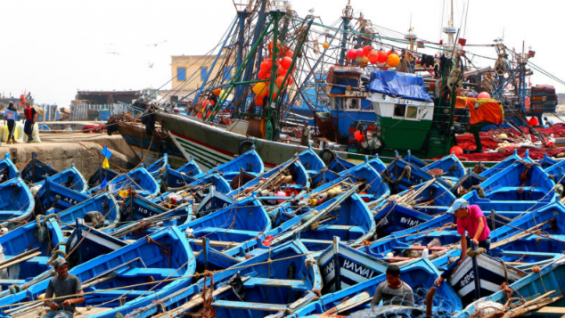On Saturday, 14th of July, the fisheries agreement concluded between Morocco and the European Union in July 2014, will expire, forcing 126 EU fishing vessels to leave the Kingdom’s territorial waters.
The expiry of the treaty comes as the two parties have held several meetings to negotiate its renewal. The fourth round of negotiations between Rabat and the Brussels is still underway. Negotiations, however, have led the two parties to a settlement yet.
Both sides aim to overcome the obstacles set by the Court of Justice of the European Union (CJEU)’s ruling, which excludes the Western Sahara waters from the agreement.
Spanish shipowners, who would be affected the most by the expiry of the agreement, want to reach a settlement with Morocco as soon as possible in order to continue fishing in the country’s territorial waters.
Spanish fishermen
According to Spanish radio Canalsur, negotiations were mainly blocked by political factors, especially the February 27th ruling, issued by the CJEU in 2018.
For the record, 90 percent of the European ships operating under the 2014 agreement fish in the Western Sahara waters.
The same source confirmed that despite obstacles, the two parties have managed to overcome the political problems related to the CJEU’s decision but without agreeing on ways of implementing that.
Spanish officials have already pointed out that Morocco had asked for 80 million euros a year as a compensation, although it was receiving only 40 million euros a year under the 2014 agreement in the past.
Reacting to the expiry of the agreement, the Spanish Fisheries Confederation (CEPESCA), expressed its regret that the EU and Morocco have not agreed yet to the renewal of the treaty and urged the authorities to compensate the affected ships, reported Agrodiario Huelva.
Meanwhile, the head of the Andalusian Federation of Fishing Associations (FAAPE) Manuel Fernández told Spanish press agency EFE that failing to renew the agreement would «put pressure on the Gulf of Cadiz, because the Spanish boats, after leaving the Moroccan waters, will be forced to operate there».
«The vessels operating in Morocco have dual licenses that enable them to fish in the waters of the Gulf of Cadiz and the waters of another country», he added, referring to the consequences of the delay.




 chargement...
chargement...












